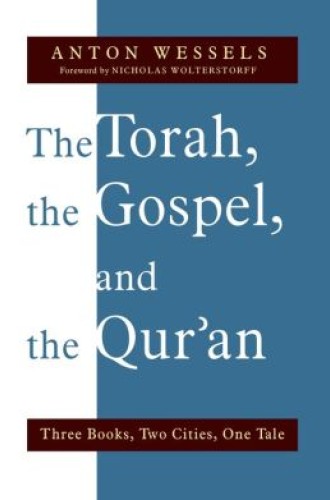The Torah, the Gospel, and the Qur’an, by Anton Wessels
In this daring and wide-ranging work, Anton Wessels interprets the scriptures of the Abrahamic religions as presenting a single narrative common to a united Judeo-Christian-Islamic tradition. A Presbyterian minister and professor emeritus at the Free University in Amsterdam, Wessels is well aware that many people view the Jewish, Christian, and Islamic traditions as hostile competitors, destined forever to mutual animosity, and that others group Judaism and Christianity on one side of a divide as the Judeo-Christian tradition and view Islam in hostile isolation on the other side. Wessels has long been involved in interreligious reflection and has published a wide array of studies ranging from a guide to the Qur’an to a study of the spiritual message of the paintings of Vincent van Gogh to a provocative historical reflection on whether Europe was ever really Christian.
In interreligious studies, investigators may focus primarily on areas of convergence among religious traditions or primarily on areas of divergence. Each approach offers distinctive opportunities and challenges. Aware of how often each of the Abrahamic traditions has interpreted its scripture against the other traditions, Wessels resolutely emphasizes points of convergence, going so far as to assimilate the perspectives of the Torah, the Gospel, and the Qur’an into a single story. It is an audacious wager, and not without dangers.
About midway through his exposition, Wessels summarizes his approach: “My starting point in this book is to read the three Books, the Torah, the Gospel, and the Qur’an, as a single tale: breaking with the city of injustice (Assur, Babel, Sodom) and heading for the city of justice and peace (Jerusalem, Medina).” The frame for Wessels’s tale is the theme of two cities in Augustine’s classic The City of God against the Pagans, with echoes of Charles Dickens’s classic A Tale of Two Cities. Wessels’s entire book could be read as an attempt to update Augustine’s work in light of Islam, incorporating the Qur’an into the story and in the process radically revising many of Augustine’s assumptions.





